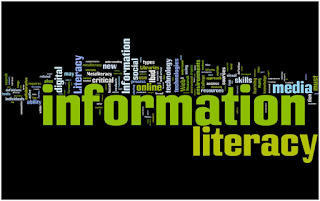The Social and Relational Turns in Information and Information Literacy Instruction: Some Practical Suggestions
I emphasize the relational nature of information and data to disrupt current concepts of things and processes in academic information literacy instruction. When I was an academic librarian at a suburban university in Michigan, I was one of several lecturers who was responsible for the lion's share of bibliographic instruction for students in a first-year research writing course. I taught over 300 students per semester.
Lectures and class activities focused on students using proprietary databases to find, evaluate, and use information. Students seemed to understand information as "stuff" on the Internet. They used this stuff to hastily create a paper or presentation that may be graded by an instructor and then forgotten. For these students, information was part of an academic "trivial pursuit" on route to more important goals: a college degree and a well-paying career. Information wasn't a connection to other people. It was simply stuff. That only mattered to a teacher. Who gave them a grade. Ten years in the future, these students most likely will not remember this exercise using this stuff.
Why should students remember? The process and product seem to bear no resemblance to their social realities--personally or professionally.
To remedy this problem, I suggest that we frame information literacy courses and classes (including one-shots) as approaches to ethical behavior within a nexus of relationships in a community. Doing a one-shot? Emphasize the connection between audiences and writers and the larger sociopolitical context. I once used that approach. The students were excited because their research became something more than just a quick plug and play exercise for a grade.
Students do no understand the importance of correct citations? Focus on how the use of correct citations facilitates trust between them and others in their community. And how accuracy in these intricate details helps to build trust in other relationships, including those involving them and their future employers.
In short, we should try to recreate authentic social environments when we teach information literacy and conduct bibliographic instruction.
Information and data (like we humans) cannot exist in a vacuum. The ACRL Framework defines scholarship as conversation. Conversation implies a connection, however brief, between two or more people. When we connect information and data to the living, social world students inhibit every day, we rescue our instruction from being routine classes about "stuff" that these students will forget the moment they leave our classes.






Libraries have failed at reaching young adults because libraries continue to push the short-sighted mission of literacy and not the goals and objectives of information empowerment which is engrained in experiences far greater than the ability to read.
ReplyDeleteIf libraries (and librarians) have failed to reach young adults, it most likely is because librarians often focus on a technical model of literacy (decoding). Among other things, a critical approach to literacy emphasizes "the goals and objectives of information empowerment". As you may know, Paulo Freire's "Pedagogy of the Oppressed" argues for an empowerment /emancipatory model of literacy.
Delete